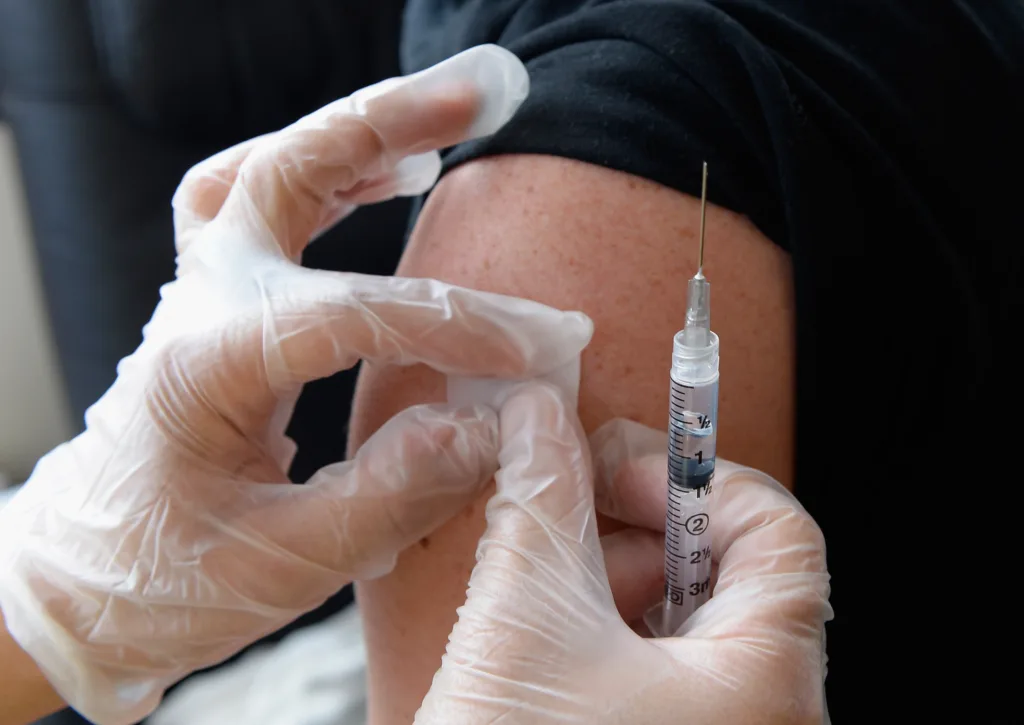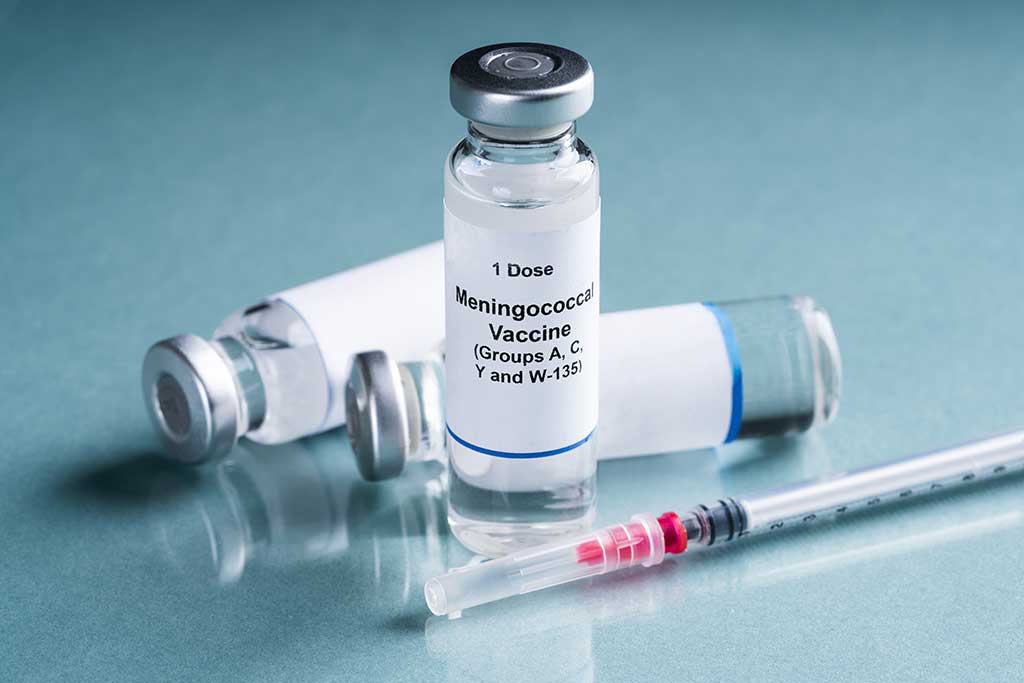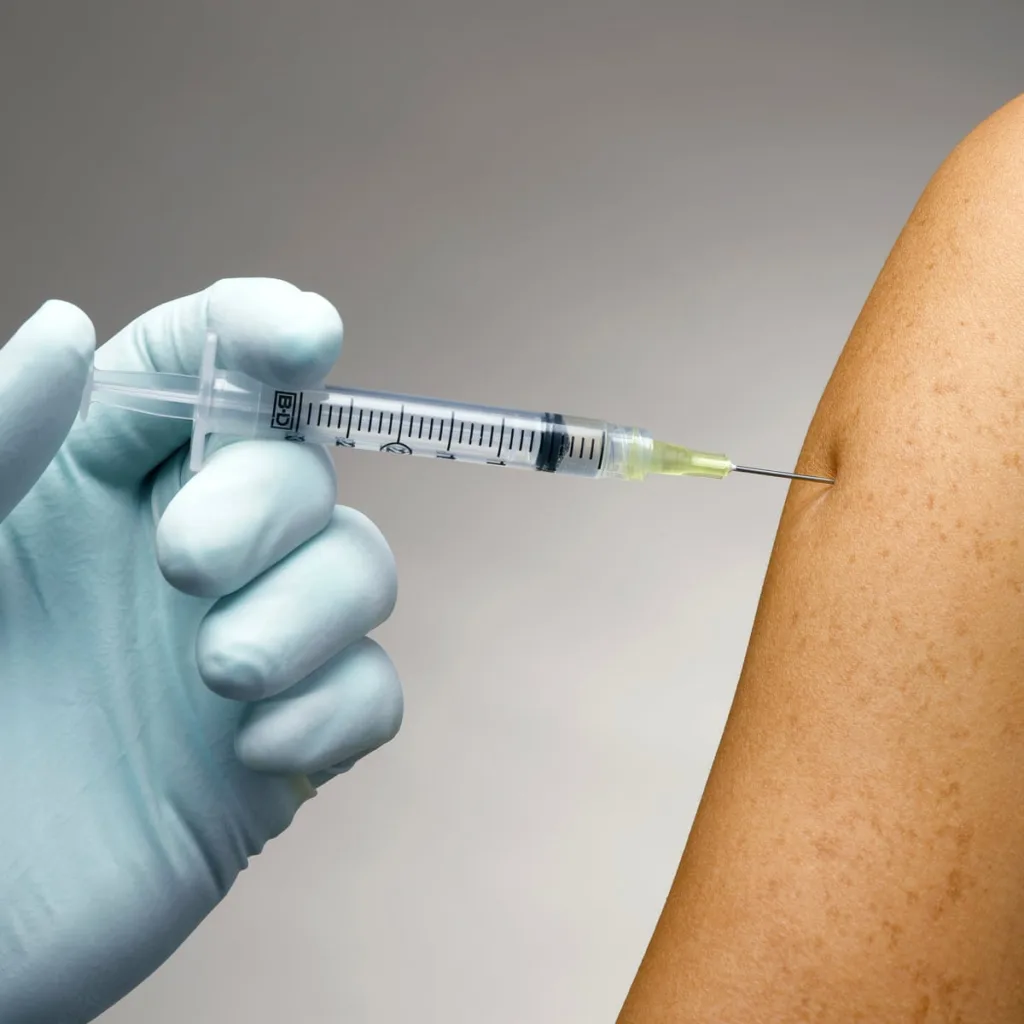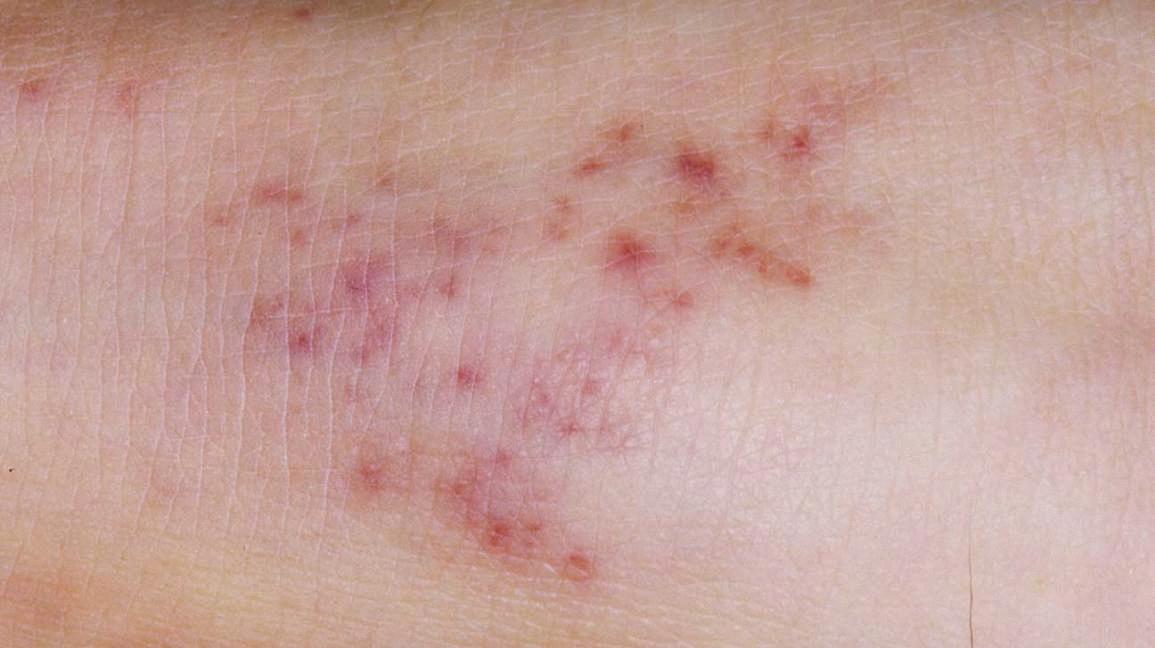Meningitis is a serious inflammation of the tissues arund your brain and spinal cord (meninges). It can be caused by a virus, bacteria, or other microorganisms. Meningitis can cause severe complications, including brain damage, hearing loss, and even death. Therefore, it is important to protect yourself against meningitis by getting vaccinated.
One of the most effective ways to prevent meningitis is by getting a meningitis shot. The meningitis shot, also known as the meningococcal vaccine, is a type of vaccine that helps your body build immunity against meningococcal bacteria, which are one of the leading causes of meningitis.
Like many other vaccines, the meningitis shot can cause temporary discomfort. Some people may experience soreness, redness, or swelling at the injection site. Others may feel tired or experience headaches. However, these side effects are usually mild and go away on their own within a few days.
It is important to note that not everyone experiences side effects from the meningitis shot. Some people may not feel any discomfort at all after getting vaccinated.
If you do experience side effects from the meningitis shot, there are some things you can do to alleviate the discomfort. Applying a cold compress to the injection site can help reduce swelling and soreness. Taking over-the-counter pain relievers, such as acetaminophen or ibuprofen, can also help relieve pain and reduce fever.
It is also important to remember that the benefits of getting vaccinated far outweigh the temporary discomfort you may experience. The meningitis shot is highly effective at preventing meningitis and its complications. By getting vaccinated, you are not only protecting yourself but also those around you by reducing the spread of meningococcal bacteria.
The meningitis shot is a safe and effective way to protect yourself against meningitis. While some people may experience temporary discomfort after getting vaccinated, these side effects are usually mild and go away on their own within a few days. If you have any concerns or questions about the meningitis shot, talk to your healthcare provider.
The Pain of Meningitis Vaccinations
Meningitis shots may cause more discomfort than othr vaccines due to the nature of the vaccine’s ingredients and the injection site. The vaccine’s components, specifically the polysaccharides and proteins, are designed to trigger an immune response, which can cause inflammation and soreness. Additionally, the vaccine is typically administered in the upper arm muscle, which is a sensitive area with a lot of nerve endings. However, it is important to note that the pain and discomfort are usually temporary and typically subside within a few days. If the pain persists or is severe, it is recommended to contact your healthcare provider.

Experience of Receiving a Meningitis Shot
A meningitis shot, also known as the MenACWY or MenB vaccine, is a preventative measure against meningococcal disease, a serious bacterial infection that can cause meningitis. The vaccine is typically given as a shot in the upper arm, and the injection site may feel sore, tender, or swollen for a few days after vaccination. Some people may also experience mild side effects such as fatigue, headache, or a low-grade fever. However, these symptoms are usully mild and go away on their own within a few days. getting a meningitis shot is a quick and relatively painless procedure that can provide important protection against meningococcal disease.
The Pain Level of Meningitis Shots
Meningitis shots, like most vaccines, can cause temporary discomfort which is generally mild in nature. The most common side effects of a meningitis shot include soreness in the arm where the shot was administered and general fatigue. These side effects typically resolve within a day or two. It is important to note that meningitis is a serius inflammation of the tissues around the brain and spinal cord, and vaccination is an effective way to prevent this condition. While the discomfort caused by a meningitis shot may be uncomfortable for a brief period, the benefits of vaccination in preventing meningitis and its potential complications far outweigh any temporary discomfort.
How Long Does Arm Pain Last After a Meningitis Shot?
It is normal to experience some soreness and redness at the injection site of a meningitis vaccine within 1-2 days following the shot. You may also experience muscle pain in your arm. These symptoms typically subside within a few days. However, if the pain lingers and gets worse over weeks or months, you may have a rare condition known as SIRVA (Shoulder Injury Related to Vaccine Administration). It’s important to contact your healthcare provider if you experience ongoing pain or discomfort after your meningitis shot.
Reducing Pain from a Meningitis Vaccine
Getting a meningitis shot is important for protecting yourself against this serious illness, but it’s understandable to want to minimize any discomfort associated with the vaccine. Here are some tips to help make your meningitis shot hurt less:
1. Ask your healthcare provider to use a smaller needle: Using a smaller needle can reduce the pain associated with the injection.
2. Relax your muscles: Tensing up your muscles can make the injection hurt more. Try to relax your arm as much as possible.
3. Apply a cold compress: Applying a cold compress to the injection site can help reduce swelling and numb the area, whih can help reduce pain.
4. Take a pain reliever: Over-the-counter pain relievers like acetaminophen or ibuprofen can help relieve any discomfort after the vaccine.
5. Massage the injection site: Gently massaging the area around the injection site can help reduce soreness and inflammation.
Remember that any discomfort associated with the meningitis shot is typically mild and short-lived, and the benefits of getting vaccinated far outweigh any temporary discomfort.

Reducing the Pain of Shots
There are a few things you can do to make a shot hurt less. Here are five tips:
1. Distract yourself while you’re waiting for the shot. Try talking to someone, playing a game on your phone, or loking at something in the room.
2. Take slow, deep breaths before and during the shot. This can help to relax your muscles and reduce the pain.
3. Focus on something in the room, like a picture on the wall or a clock. This can take your mind off the shot and make it seem like it’s over faster.
4. Cough or tense your muscles just before the shot. This can help to distract your brain from the pain of the shot.
5. Relax your arm as much as possible. Tensing up your muscles can make the shot hurt more. Instead, try to relax your arm and let the needle do its job quickly and smoothly.
Refusing the Meningitis Vaccine
In most cases, individuals are required to receive the meningitis vaccine before attending school or college. However, there are exemptions available for tose who cannot receive the vaccine for medical or religious reasons. If you have a medical condition that prevents you from receiving the vaccine, you can obtain a letter from your physician stating this, which will allow you to attend school or college without being vaccinated. Similarly, if you have a religious objection to vaccines, you can request an exemption in some states. It is important to check your state’s laws and regulations regarding vaccine exemptions, as they may vary. However, it is generally recommended that individuals receive the meningitis vaccine, as it is a highly effective way to prevent the spread of this potentially deadly disease.
Can Receiving a Meningitis Shot Cause Unconsciousness?
It is possible to faint or pass out from the meningitis shot, also known as the Meningococcal conjugate vaccine (MCV4). This is a normal reaction that can occur after any vaccination, particularly in adolescents and young adults. Fainting may occur due to a sudden drop in blood pressure and can be triggered by anxiety or fear of needles. However, fainting is not a serious side effect and usually resolves on its own after a few minutes. To reduce the risk of fainting or passing out, people are advised to sit or lie down for about 15 minutes after receiving the meningitis shot. If someone does faint, they should be placed on their back with their legs elevated and monitored until they fully recover. It is important to note that fainting or passing out after a vaccine does not indicte any serious medical condition, and the benefits of vaccination far outweigh the risks of side effects.
Receiving the Meningitis Vaccine
Meningitis shot, also known as meningococcal vaccine, is administered by the intramuscular route. This means that the vaccine is injected directly into the muscle tissue.
For infants and young children, the preferred site for the injection is the vastus lateralis muscle in the anterolateral thigh. This is the outer part of the thigh, which is less sensitive and has a larger muscle mass, making it easier to administer the shot.
In older children and adults, the preferred site for the injection is the deltoid muscle, which is located in the upper arm. This is a common site for injections and is easily accessible.
It is important to note that thee are two types of meningococcal vaccines: meningococcal conjugate (MenACWY) and serogroup B meningococcal (MenB) vaccines. Both vaccines are given by the same intramuscular route.
The meningitis shot is given through a quick and simple injection into the muscle tissue, either in the thigh or upper arm.

Reasons Not to Get the Meningitis Vaccine
Meningitis is a serious and potentially life-threatening disease, and getting vaccinated is an important step in protecting oneself from it. However, there may be certain circumstances where individuals should not receive the vaccine, such as if they have had a severe allergic reaction to a previous dose or components of the vaccine. It is always recommended to consult with a healthcare provider to determine if vaccination is apropriate for an individual’s specific medical history and circumstances.
Recovery Time After Receiving a Meningitis Vaccine
After receiving the meningitis vaccine, it is normal to experience some side effects, including fever, soreness, swelling, and a mild rash at the injection site. These reactions may last for about 2 days or longer and can occur up to 2-3 weeks after vaccination. However, it is important to note that not everyone experiences these side effects, and many people may not feel sick at all after receiving the meningitis shot. If you have any concerns or experience severe symptoms such as difficulty breathing, hives, or a high fever, it is recommended that you contact your healthcare provider immediately.
Feeling Sick After Receiving a Meningitis Vaccination
It is common to experience some mild symptoms after receiving a meningitis shot. These symptoms may include swelling, redness, and pain at the injection site, as well as headache, fever, or tiredness. These side effects typically occur wihin a few hours to a few days after receiving the vaccine and are generally mild and short-lived. These symptoms are a sign that your immune system is responding to the vaccine and building protection against meningococcal disease. Serious side effects are rare, and the meningococcal vaccines contain only a small piece of the germ, so they cannot cause meningococcal disease. If you have any concerns about your symptoms, you should speak with your healthcare provider.
The Sensation of Receiving a Shot
A shot is an injection of medicine or a vaccine typically administered through a needle. The feeling of receiving a shot can vary depending on the individual’s pain tolerance and the location of the injection site. However, generally, a shot feels like a quick, sharp pinch or a small insect bite. Some people may experience a brief stinging sensation, while others may feel a dull ache or soreness at the injection site afterward. It is essential to remember that the discomfort from a shot is temporary and usually lasts only a few seconds. If you are concerned abut discomfort or pain from receiving a shot, you can speak with your healthcare provider beforehand, who may recommend taking a pain reliever or numbing cream to help reduce any discomfort.

Source: healthline.com
Side Effects of the Meningitis Shot
The meningitis shot, also known as the meningococcal vaccine, is generally considered safe, but like all vaccines, side effects can occur. The most common side effects include soreness, redness, or swelling where the shot was given. Fatigue, headache, muscle or joint pain, fever, and chills are also possible side effects. In some cases, individuals may experience nausea or diarrhea following the vaccine. It is important to note that these side effects are usually mild and go away on their own within a few days. Serious side effects are rare, but if you experience symptoms such as difficulty breathing, swelling of the face or throat, or a high fever, seek medical attention immediately.
Conclusion
Getting a meningitis shot can help protect you from a serious inflammation of the tissues around your brain and spinal cord. While it’s normal to experience mild discomfort such as soreness, redness, and fatigue, these side effects usually resolve withn a day or two. If you experience muscle pain in your arm that lingers or gets worse over weeks or months, it’s important to seek medical attention as this could be a rare condition known as SIRVA. As with any vaccine, it’s important to weigh the potential benefits against the risks and discuss any concerns with your healthcare provider. getting a meningitis shot is a safe and effective way to protect yourself from this serious illness.
